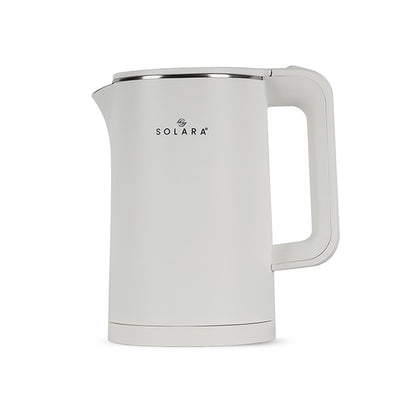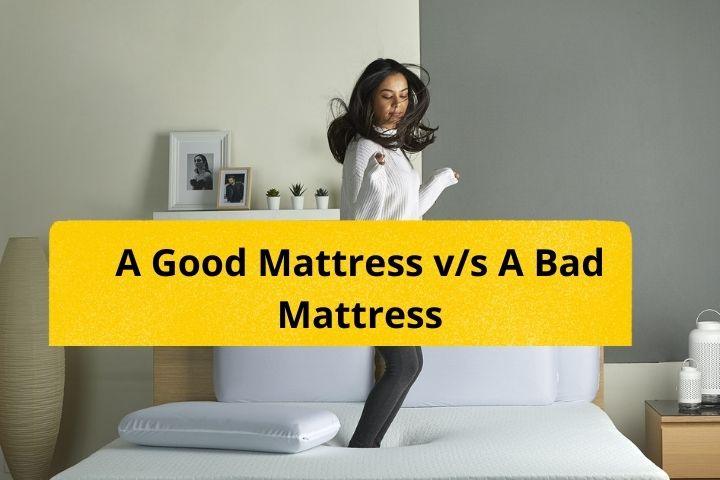
Do you believe in magic? Well, some of you may call this out as silly, but seriously, do you? And would you agree if I call sleep some deeply magical phenomenon which takes away a day’s exhaustion and, in a matter of few hours, fills you with pleasant freshness? Calm down, science brigade! I know that a scientific explanation exists behind any and all workings of sleep.
But just think about it. Occupied with work all day long, be it glaring at computer screens while trapped in mini-cubicles or doing the home chores and running errands or involved in some muscle-grind toil – the activities in a day don’t stop or rest. But at the end of the day, you return to your safe spaces called “homes” and drop on your beds to get a peaceful sleep in the hope of waking up the next morning – buzzing with energy – to continue with the day’s routine efficiently.
What is the secret behind the healing spell that sleep casts on you?
Dreams! Yes, of course. But there’s more to it. Do you know what exactly happens during sleep that relieves you of all pain and helps you recover from the mental and physical draining of the previous day? Hear it out, and yes - this time science would take over the explaining part.
There are many theories related to sleep physiology and, out of which, three are basic and easy to understand. They are,
Energy Conservation Theory: It talks about how sleep enables you to conserve energy and that it lowers the metabolism by 10% while you snooze.
Restorative Theory: It hails sleep as a remedial process, as it allows the body to “repair and replete” cells (necessary for carrying out the biological functions) that may have undergone damage or simply depleted during the day. Muscle and tissue-group repair, protein synthesis, and secretion of growth hormones – “all occur primarily during sleep.”
Brain Plasticity Theory: It states that sleep is vital for the development of the brain’s structure and function. No wonder why infants sleep up to 14 hours a day. Moreover, a deep and restful sleep organizes the memories and overall neural mass of information.
If sleep is of paramount significance to your health and well-being, so should be the sleep environment. Isn’t it? And more precisely, the surface on which you lie down. Let’s get the word out – mattress!
A good mattress is all you need to get a good night’s sleep!
How does a mattress affect your sleep? Either it gives you a blissful sleeping experience, and you feel similar to floating on a cloud. Or, it causes you to keep tossing and turning in bed, and your sleep hits a cul-de-sac. Some provide able support to your body, while some others just worsen your back and neck pain. So, it becomes important that you choose a good mattress for yourself.
Several factors contribute towards attaining an optimal sleep environment. Now, a good mattress will positively influence these factors, getting you quick and easy sleep. And a bad mattress will do the opposite, and you may spend the entire night counting sheep in vain. Let’s take on five factors that you can’t compromise with at any cost.
1. Is your mattress giving your back the right support?
Do you know that you spend one-third of your life sleeping? Research suggests that an individual dedicates eight hours of a day to taking rest, including the part when you just lie on the bed and let your eyes feast on a book or movie.
Your back falls on the mattress and expects adequate support for the proper alignment of the spine. Now, if the mattress is too firm, it will interfere with the resting curvature of the spine. And if it’s too squishy, your body will dip into it.
“If you mess with the neutral positioning of the spine while you rest and neglect its plight, you can develop poor sleeping postures in the long-term, which can lead to subsequent back pain,” warns Dr. Leigh Hanke, physiatrist and assistant professor of Clinical Orthopedics at the Yale School of Medicine.
“But what is soft for you may be a little firm for another person. Let preference and comfort guide you on the path to finding your best mattress for health.”
2. Pressure points may run sore if your bed is bad!
There is a wide network of blood vessels underneath your skin. When you remain in a single posture for a long period, for example, sleeping on the side and having your head placed on an upper arm, the flow of blood through it may get reduced, depriving the very region of oxygen and nutrients.
This leads the nerve cells and pain sensors in your arm to signal to the brain, “Perhaps, it is time you consider rolling over!” And then, you roll over, restoring the blood flow to your arm. However, if this occurs too many times, it can upset your sleep.
“A mattress that contours to the body and relieves all the pressure points can be instrumental in cutting the need for frequent turning and shifting positions. Yes, a memory foam mattress is an ideal choice here,” advises Dr. Michael Decker, Ph.D., RN, associate professor at Georgia State University and spokesman of American Academy of Sleep Medicine (2014).
3. Unable to maintain your desired sleep posture?
There sure is a problem with your mattress that needs to be corrected.
Mr. Howard Levy, MD and assistant professor of Orthopedics, Physical Medicine and Rehabilitation at Emory University, says, “A mattress can be too soft and, as a result, cannot manage your weight; your back may slump into it. Or, it can be too hard and exert unnecessary pressure on the sacrum, shoulders, and the back of your head.
I suggest going with a medium-firm mattress anytime if you are confused. It orients the spine with just the right balance of support and cushioning.”
The mattress configuration depends on what materials are used in its making and their respective densities. Even the number of layers and thickness of each – have a fair share in deciding how good a mattress performs in improving the sleep postures.
Also, keep in mind that a mattress should be spacious enough to fit you. No curling up and keeping your hands to yourself because of lack of space or half of the ankles peeping outside the mattress’ edge! These are no signs of a good mattress.
4. Never fall into a sleep debt!
Suppose, you need eight hours of sleep per day, but you get your head down only for six hours. This is more serious than you can imagine, as you are giving yourself a two-hour due each day. And if you continue this habit for a week, the sleep debt may pile up to a total of 14 hours.
What causes the sleep debt? It can be a lack of definite sleep hygiene. Or, an incompatible or old mattress that fails to produce a favorable environment for sleep. Nap debts can affect your sleep quality adversely and lessen the restorative or deep phase of sleep. Reports point out that they can lead to muscle aches and weak metabolism, hampering the body’s on-balance productivity.
They can also give rise to sleep disorders in the long run and, if you already have one – they can aggravate its symptoms. A domino effect is what you see if you don’t pay requisite attention to your sleep health.
5. Your mattress shouldn’t make you feel too hot or too cold.
During sleep, your body gives out some heat to the external surroundings. And the resulting (slight) drop in core temperature makes you sleep faster. Some mattresses trap this body heat, making you uncomfortable and all drenched in sweat. On the other hand, a few have excellent thermoregulatory properties, and they fan out the heat to and finally off their ends.
Different mattresses are made up of materials having different heat-retaining abilities. Too cold a sleep environment is equally damaging to sleep health as it can bring about medical conditions including arthritis, fibromyalgia (along with fatigue, memory, and mood issues).
The sweet-sleep temperature takes into account the climatic conditions of the area you reside in, individual preference, and sleep habits. Moreover, if you share your bed with a partner, a “which mattress is good for sleep” discussion before buying will be indeed helpful.
A bad mattress is a pain in the back! And in the chest & shoulders too.
What can a bad mattress do to your body? Let’s talk about it and also glance over some of its tell-tale signs.
1. Is your mattress smelling musty?
That can be the dust mites, bed bugs, or other critters taking over your mattress and making it a dump pit for their fecal matter. Grossed out, aren’t you? But it is an absolute fact that you go to bed every day with millions of microscopic dust mites, sprawling upon and within the different layers of your mattress. Want to know what they feed on? Your dead skin cells. And these mites multiply like crazy.
2. Bed critters can increase your sleep apnea.
First of all, any mattress playing the breeding ground for critters is a bad and unhealthy mattress. It can add to your breathing issues that you may face trying to have a shut-eye time, including asthma, allergies, and sleep apnea. Such mite-infested mattresses can also induce regular episodes of nasal congestion and chest tightness. So, be careful, and even if you find mild symptoms of any respiratory condition appearing – take the necessary steps right away.
3. Does your mattress sag in the middle?
After using it for years, you may come across indentations on its surface. Most drooping occurs in the middle region, where your greater weight of the body rests. This directly affects the positioning of the spine, as your back appears to sink into the depression (so formed). What now? You may suffer from lower back and neck pain, sore joints, and muscle aches, and they are determined to cause persistent disruptions in your sleep routine.
Plus, the lack of sleep further continues to mess up your day-to-day activities. Feeling drowsy at work, failing to secure mental focus, inability to draw judgements quickly, and the ugly mood swings – they are enough to flip a bright and happy day into a wholesome nightmare.
4. Skin-care enthusiasts, beware of bed mites!
Sleep deficiency taxes your skin health too. It hits the stress hormones on a free run, and they have your skin breaking out. Loss of sleep can give you acne and sometimes, lots of them. It also weakens the in-general elasticity of the skin, intensifying wrinkles.
5. Itchy eyes & rashes don’t let you sleep.
A zero-bounce bad mattress is mostly an old mattress that needs replacement. Think of all inadvertent food and water spills that you did, which led to the growth of mold and mildew on and in between the mattress layers.
They can stir up eye infections and rashes to your skin, with severe itching in both cases. In addition, pet dander and oncoming dust and pollen mix, and they form a thick layer on the outer surface of the mattress, initiating sneeze-relays or coughing during sleep.
The bottom line:
If you are looking for a mattress that can help treat your orthopedic issues, then go by what the experts suggest and bring home a memory foam or latex mattress; the two offer medium-firm support. But they both are costly when compared to other types of mattresses available in the market.
Now, a memory foam mattress adjusts to the curves and lines of your body, relieving the joints. However, the foam used in it can invite allergies and may retain heat. Not to worry, as some companies have launched a memory foam mattress with a cool-gel layer present atop, which allows it to evict its heat out.
Still, nothing matches the slight-bouncy and high durability of an all-natural and sans-allergy latex mattress. It always tops the “which mattress is good for health” list. Other than these two, you have the options of coir and spring mattresses. One made up of coir is natural but doesn’t last long. And the one with springs is considered “unhealthy” for one’s back and spine.
If you wish to prolong your mattress’ life, use a washable and water-proof mattress cover as it keeps things fresh and hygienic. Lastly, when on a hunt for a brand-new mattress, search for companies that provide generous trial periods. In case, the mattress (that you have bought) doesn’t fulfill your expectations, you can return it to its company within a particular time frame (usually 30-100 days) and get your money back. So, smart-buy a mattress, maintain it well, and you get to enjoy a relaxing sleep each night.
Bibliography
References:
- https://www.ncbi.nlm.nih.gov/books/NBK482512/#_article-29132_s3_
- https://www.ncbi.nlm.nih.gov/pmc/articles/PMC2697581/
- https://www.cdc.gov/niosh/emres/longhourstraining/debt.html
- https://www.hindawi.com/journals/isrn/2011/576849/
- https://www.researchgate.net/publication/332874306_Novel_natural_rubber_latex_memory_foam
Related Information:


























